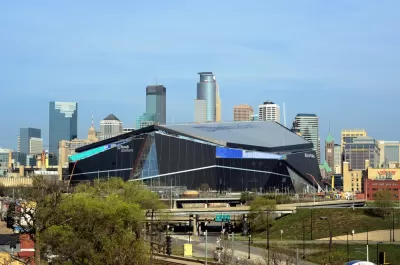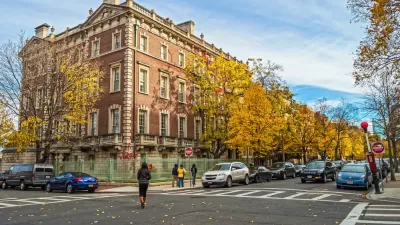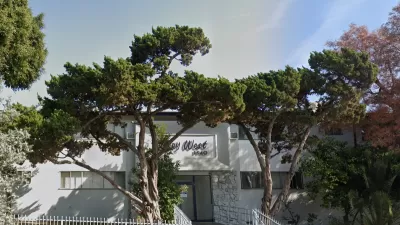The Twin Cities have a super-sized incentive to nail down regulations for short-term rentals. A tax revenue windfall hangs in the balance.

"With February’s Super Bowl at U.S. Bank Stadium, [Minneapolis and St. Paul] are actively discussing ordinances aimed at regulating this industry — not to mention collecting a little revenue," reports Greta Kaul.
Kaul notes that Airbnb already has a sizable portfolio in the Twin Cities, though none of the rentals are technically legal.
The article serves in part as a primer on the nascent field of short-term rental regulations practices before transitioning to a discussion of the specific of each city's proposed regulations. St. Paul's initial proposal, writes Kaul, "would limit short-term rentals to half of the units in a multidwelling building, up to four total; would disallow commercial or social events, require hosts to pay a $70 fee to be licensed and require them to pay lodging and sales tax (typically, St. Paul’s lodging tax is 3 percent [pdf], in addition to sales taxes and transit taxes, for establishments with less than 50 rooms), property insurance, and require non-owner-occupied units to have fire inspections, plus require platforms to pay $7,000 to operate in the city (St. Paul imposes a $30,000 licensing fee on ride network platforms like Lyft and Uber), among other provisions."
Meanwhile in Minneapolis a draft ordinance appearing before the Community Development and Regulatory Services Committee of the City Council this week "would require operators of short-term rentals to be licensed."
FULL STORY: With Super Bowl windfall in sight, Minneapolis and St. Paul look to regulate short-term rentals

Alabama: Trump Terminates Settlements for Black Communities Harmed By Raw Sewage
Trump deemed the landmark civil rights agreement “illegal DEI and environmental justice policy.”

Study: Maui’s Plan to Convert Vacation Rentals to Long-Term Housing Could Cause Nearly $1 Billion Economic Loss
The plan would reduce visitor accommodation by 25% resulting in 1,900 jobs lost.

Planetizen Federal Action Tracker
A weekly monitor of how Trump’s orders and actions are impacting planners and planning in America.

Waymo Gets Permission to Map SF’s Market Street
If allowed to operate on the traffic-restricted street, Waymo’s autonomous taxis would have a leg up over ride-hailing competitors — and counter the city’s efforts to grow bike and pedestrian on the thoroughfare.

Parklet Symposium Highlights the Success of Shared Spaces
Parklets got a boost during the Covid-19 pandemic, when the concept was translated to outdoor dining programs that offered restaurants a lifeline during the shutdown.

Federal Homelessness Agency Places Entire Staff on Leave
The U.S. Interagency Council on Homelessness is the only federal agency dedicated to preventing and ending homelessness.
Urban Design for Planners 1: Software Tools
This six-course series explores essential urban design concepts using open source software and equips planners with the tools they need to participate fully in the urban design process.
Planning for Universal Design
Learn the tools for implementing Universal Design in planning regulations.
Caltrans
Smith Gee Studio
Institute for Housing and Urban Development Studies (IHS)
City of Grandview
Harvard GSD Executive Education
Toledo-Lucas County Plan Commissions
Salt Lake City
NYU Wagner Graduate School of Public Service





























